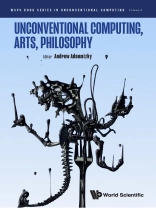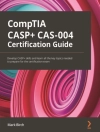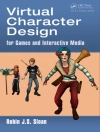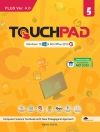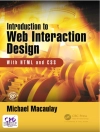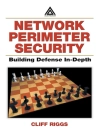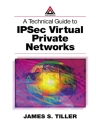The unique compendium re-assesses the value of future and emergent computing technologies via artistic and philosophical means. The book encourages scientists to adopt inspiring thinking of artists and philosophers to reuse scientific concepts in their works.
The useful reference text consists of non-typical topics, where artistic and philosophical concepts encourage readers to adopt unconventional approaches towards computing and immerse themselves into discoveries of future emerging landscape.
Contents:
- Labyrinth: From Literature to Algorithms (José Félix Costa and Paula Gouveia)
- Computational Non-universality: Philosophical and Artistic Perspectives (Selim G Akl)
- Natural Computation of Cognition, from Single Cells Up (Gordana Dodig Crnkovic)
- Are There Traces of Megacomputing in Our Universe (Olga Kosheleva and Vladik Kreinovich)
- Communication, Information, Energy, and Music (Dawid Przyczyna, Marcin Strzelecki, Gisya Abdi, Lulu Alluhaibi, Kapela Pilaka, and Konrad Szaciłowski)
- Swarms of Microscopic Agents Self-assemble into Complex Bodies (Bruce Mac Lennan)
- Kakiwari: The Device Summoning Creativity in Art and Cognition (Yukio Pegio Gunji1 and Kyoko Nakamura)
- What Universal Turing Machines Might Tell Us (Maurice Margenstern)
- A Computable Piece of Uncomputable Art Whose Expansion May Explain the Universe in Software Space (Hector Zenil)
- Brain-inspired Computing: Achievements and Challenges (Filippo Romani and Victor Erokhin)
- Novel Reversible Logic Elements for Unconventional Computing (Kenichi Morita)
- Logic, Stress, and Satisfaction (Andrew Schumann)
- Mu-Psi and Music Space: Insights into a 21st Century Music Practice (Cristian Vogel)
- In Search of Textile Roots of Computing: The Genesis of the First Ma So Carpet in India (Tim Otto Roth)
- Unconventional Sensing: Doing It in an Unusual Way in Unusual Settings (Zoran Konkoli)
- Unconventional Computing Art in Cellular Automata (Genaro J Martínez, Andrew Adamatzky, and Marcin J Schroeder)
- Extended ‘Beehive’ Rule Cellular Automaton Dynamics on Irregular Lattices — A Preliminary Study in the Form of a Visual Catalog (Phil Ayres)
- The Benefits of Being Wrong: Bonding Epistemic and Cognitive Incompletness for Natural and Artificial Intelligent Systems (Jordi Vallverdú)
- Formal Language of Abstract Art (Vladimir Murtazin)
- Conventional Non-computing and Unconventional Musical Signal Processing (Zlatko Baracskai)
- Exploring Chaos with Analog Computers (Bernd Ulmann)
- A Natural History of Networks: Softmachine (Ralf Baecker)
- Artists Encoding New Meanings through Bio Art and Unconventional Computing (Hege Tapio, Kristin Bergaust, Boel Christensen-Scheel, and Stefano Nichele)
- The Cosmic Vineyard (Alessandro Chiolerio)
- Feral Automated System: Prototyping (Nikita M Sazonov, Ippolit V Markelov, Ekaterina B Nikitina, Dmitriy A Lobanov, Natalia V Alatortseva, Dmitriy E Kadyrov, and Mikhail M Petrov)
- Fungal Gray Matter (Andrew Adamatzky, Irina Petrova, and Antoni Gandia)
- The Chemical Machine (Preety Anand and Grace Chung)
- Collapsing the Wave Function on Postquantum Unconventional Computing (Richard Mayne)
- Tactile Computing Interaction and Its Application for Arts (Yasuhiro Suzuki)
- Complex Excitable Media: Activators Design, While Inhibitors Embellish (Sergio Alonso Muñoz)
- Designing Microchemical systems Like Living Matters Induced by Interfacial Phenomena (Daigo Yamamoto, Erika Okita-Nawa, and Akihisa Shioi)
- Chemical Composition (Sarah Sebastian)
- How to Face the Complexity of the 21st Century Challenges? The Contribution of Natural Computing (Pier Luigi Gentili)
- An Unconventional Look at AI: Why Today’s Machine Learning Systems are not Intelligentt (Nancy Salay)
- Composing Music with Bio-Technology: An Intelligent Algorithmic Composition System Using Physarum polycephalum-based Memristors (Satvik Venkatesh, Edward Braund, and Eduardo Reck Miranda)
- The Recent Biotechnology of Tech-tattoo: An Approach from Science, Art, and Philosophy (Catarina Pombo Nabais)
Readership: Researchers, professionals, academics, and graduate students in theoretical computer science, information theory, complex systems and popular science.
Koop dit e-boek en ontvang er nog 1 GRATIS!
Taal Engels ● Formaat EPUB ● Pagina’s 600 ● ISBN 9789811257162 ● Bestandsgrootte 29.9 MB ● Editor Andrew Adamatzky ● Uitgeverij World Scientific Publishing Company ● Stad SG ● Land SG ● Gepubliceerd 2022 ● Downloadbare 24 maanden ● Valuta EUR ● ID 8735899 ● Kopieerbeveiliging Adobe DRM
Vereist een DRM-compatibele e-boeklezer
